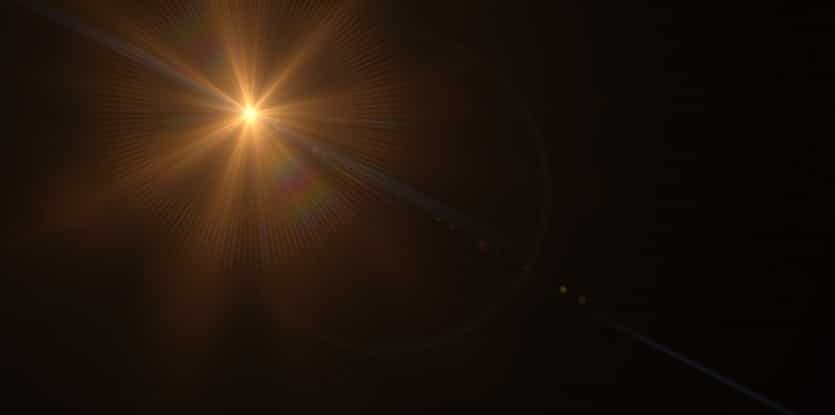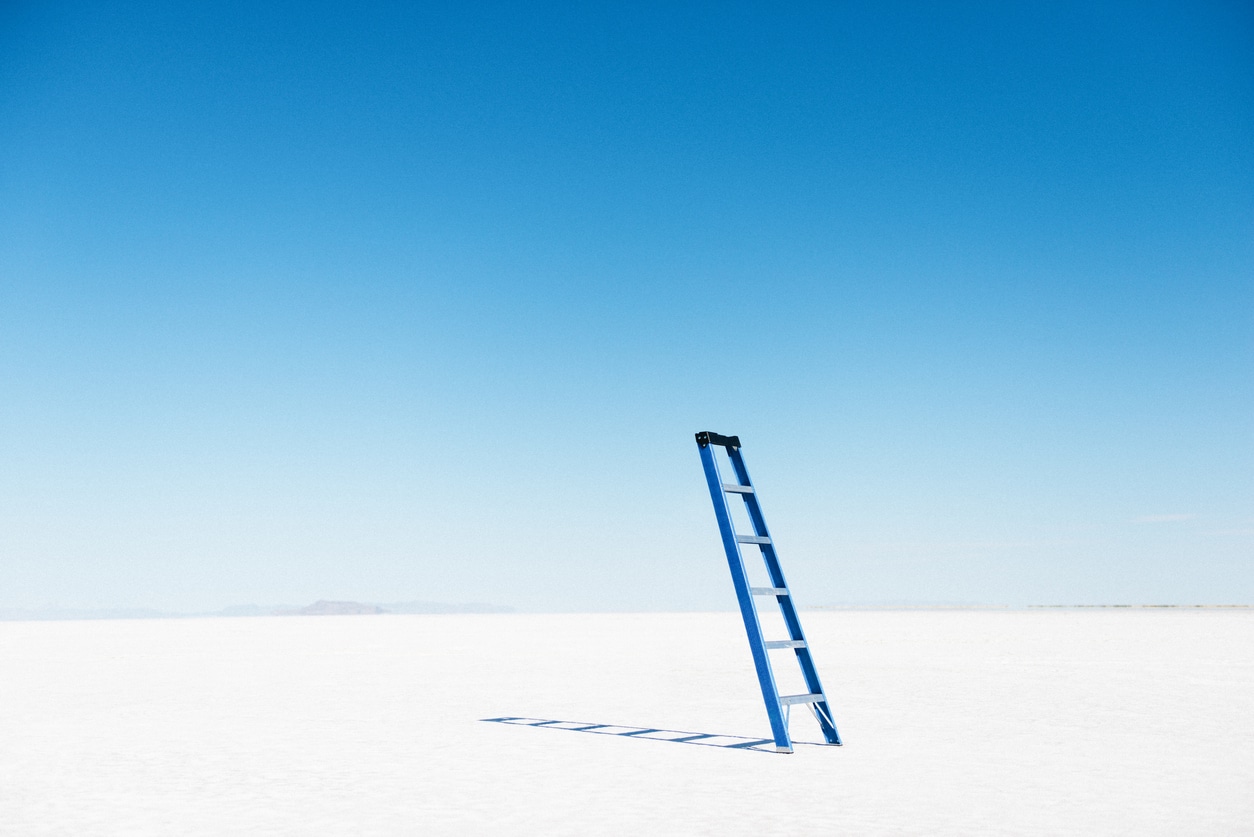How One Lonely Battle Changed the Course of History
And Jacob remained alone, and a man wrestled with him until the break of dawn.
Genesis 32:25
During the night of Exile, the nations of the world and the kingdom of Edom (Esau) wrestle with Jacob, until the dawn of redemption.
Midrash Lekach Tov on the verse
So now we go from the frying pan into the fire. After 20 years of hard labor in Laban’s home, Jacob has built a family and gathered the necessary resources preparing him to enter the fray and confront Esau.
In personal terms: Once we have built up our strength and resources and established a family and secure home – a solid ground base – we are then ready to enter combat with the difficult “Esau” based warrior-like world, as discussed in last week’s Before the Battle.
What happens next is the theme of this week’s Torah chapter and this corresponding column.
After 20 years of hard labor in Laban’s home, Jacob has built a family and gathered the necessary resources to confront Esau. He now feels ready to reunite with Esau and join forces. Jacob therefore dispatches messengers to Esau as an overture for reconciliation. When the messengers return with the news that Esau is marching with “400 men,” he realizes that Esau is not yet ready to live in peace. Jacob would therefore have to draw out the Esau energy through his own efforts.
These efforts constitute the essential theme of this week’s Torah portion. A previous article, The Big Confrontation, reviews the overall story of what actually happens when Esau and Jacob finally meet and its personal applications. In this complementary column we will focus on one key episode that occurs the night before Jacob meets Esau.
After recognizing the precarious situation, Jacob prepares himself and his family to encounter Esau. He splits his family and belongings into camps, and prepares gifts to appease Esau. He also prepares for war.
That night was a fateful one. “In the middle of the night he got up” and took his family and possessions “across the Yavok river.”
“Jacob remained alone. A man wrestled with him until the break of dawn. When he saw that he could not defeat him, he touched the upper joint of [Jacob’s] thigh. Jacob’s hip joint became dislocated as he wrestled with him.”
Upon dawn break the man asks to leave, and Jacob complies only after exacting a blessing from the man. The blessing is that Jacob, and his descendants, would have a new name – “Israel.”
This mysterious wrestling episode is fraught with cryptic implications and intonations.
The sages and commentaries analyze the meaning of the Hebrew word used here for wrestling, “Va’yai’oveik.” One primary opinion is that it is derived from the word “avok,” which means dust, referring to the dust that rose from the ground they were struggling on. As the classic Bible commentator Rashi writes:
“Menachem explains: And a man became covered with dust, derived from dust, for they were raising dust with their feet through their movements.”
According to this interpretation an obvious question is: why does this dust play such a primary role here? It would appear that the dust created by their struggle is a side-effect, a peripheral detail, an insignificant consequence of two people wrestling on the ground (were they wrestling, say, on stones there would be no dust). Why then does the Torah give it such prominence, and actually uses a word that focuses more on the dust than on the struggle itself?
Indeed, upon further research the dust takes on a whole life of its own: The Talmud explains that:
“The dust of their feet went up to the Divine Throne.” (Chulin 91a)
The Midrash (Shir HaShirim Rabba 3:5/2) goes even farther and tells us that all Jacob’s gifts came as a result of this “dust.” Furthermore, all the “gifts that Israel would gain in this world,” “all the success they would have in business,” “all the success they would have in battles” – all of it is “in the merit of Jacob’s dust”!
What possible power did this dust have that it would be the source of all these blessings throughout history?
First we need to understand who was the mysterious “man” that wrestled with Jacob? He was the guardian angel of Esau (Genesis Rabba 77:3. 78:3. Tanchuma Vayishlach 8. Zohar Bereishis 170a. Rashi. See Hosea 12:4-5). Jacob’s wrestling with him all night symbolizes the struggle with materialism and evil that he and his descendants would have from this time forth during the night of “exile” (see Rashba Chulin ibid. Ramban and Bachya on our chapter).
[The Zohar (VaYikra 100b) implies that this wrestle took place on Yom Kippur eve, which only underscores the centrality of this event].
Jacob’s wrestling with Esau’s angel cuts straight to the spiritual core of the perpetual battle between the twins. As we discussed in the previous articles how Jacob’s lifelong battle with Esau reflects the struggle in each of our own lives and in all of history – the battle between matter and spirit. Esau the warrior represents the body, the material world, whose untamed elements need to be conquered. Jacob the wholesome scholar symbolizes the soul, the spiritual world. Initially these two worlds clash and fight for control.
In mystical terms this struggle represents the process called Avodat ha’Birurim. Everything in our material existence contains Divine “sparks,” i.e. spiritual energy, and we are charged with the mission to redeem and elevate these sparks, to uncover the spiritual opportunity embedded in every experience, and thereby refine the material universe and transform it into its true purpose: a vehicle for spiritual expression.
Esau and Jacob are the embodiment of the cosmic twin worlds of Tohu and Tikkun. Esau is the “warrior” – the raw, untamed energy of Tohu, which is embedded in coarse matter. This energy is a very powerful force – far more powerful than the defined energies that animate Jacob’s correct and orderly world. However, without the focus and control of the structured Tikkun spirituality, that material universe can become a destructive force. Matter needs spirit to channel its enormous energy toward constructive goals. The challenge of all life is that we humans delve beneath the surface of the physical world to unearth the “sparks of holiness” that are the residue of the primordial Tohu world, tap their potent potential, and, ultimately, integrate the two realities, fusing the cosmic twins by capturing the “immense energy” of Tohu in the “broad containers” of Tikkun.
The struggle to achieve this synergy is the life-history of the biblical twins, and the essence of human history as a whole. Esau and Jacob emerge from the same womb where they were already fighting, and the rest of their lives is defined by the search for reconciliation. But the dichotomy is too deep to be resolved in one lifetime. The forces of Tohu are too expansive, too hungry and too raw to submit to the rigors of Tikkun; and the vessels of Tikkun are too defined, too structured, to embrace the passions of Tohu.
So the quest to unite Tohu and Tikkun extends beyond their lifetimes, to the nations of Israel and Edom, which originate from Jacob and Esau. The eight kings which “reigned in Edom, before there reigned any king over the children of Israel” are the volatile forces of Tohu, while the people of Israel proceed to Sinai where they are entrusted with the mandate of the 613 commandments to bring tikkun olam, the correction and civilization of the world. All of subsequent history is the story of the tension between matter and spirit and our efforts to relieve the tension and find resolution by integrating Jacob and Esau. The conflict rages on in the battles between Judah and Rome, between spirit and matter, between the sacred and the mundane, to be resolved at the end of days when the struggles of humanity culminate when “the saviors shall ascend Mount Zion to judge the mountain of Esau.”
In this context we can understand the significance of the “dust” that arose from Jacob wrestling with Esau’s angel.
Before Jacob encountered the angel, we are told that he “remained alone.” The sages explain that:
“He remained for the sake of some small jars he had left behind. From this we learn that the righteous value their money more than their bodies.” (Chulin ibid)
Money?! Why would Tzaddikim place such premium on… money?! Why would Jacob risk his life to return for nothing more than the value of some “small jars”?!
The Baal Shem Tov explains: The righteous know that their material possessions contain powerful “sparks of holiness” which are redeemed and elevated when the object or resource they inhabit is utilized to fulfill the Divine will. The righteous person sees these sparks of Divine potential as virtual extensions of his own soul, indeed, they are forces that catapult his soul to unprecedented heights, since he understands that the very fact that Divine Providence has caused them to come into his possession indicates that their redemption is integral to his mission in life. (For a lengthy discussion on the topic see Wealth and Spirituality).
Jacob knew that to fulfill the purpose of his being he needed to elevate the “sparks” of Esau that lay embedded in the material world, including the last remaining “small jars.” He therefore returned and “remained alone” to redeem those “jars.”
As Jacob “remains alone” for the sake of the “small jars” he encounters Esau’s angel who wrestles with him until the break of dawn. When we immerse in the business of money in order to extract the “sparks” within we are faced with a powerful battle: Who will prevail – the selfish temptations so common in the pursuit of wealth or the selfless sense that your wealth must be used for a higher purpose than just your needs? Who will triumph – the voice that claims “my success is due to me and me alone – it is my intelligence and strengths that brought me this wealth,” or the one that feels “it was not my own strength and personal power that brought me all this prosperity. Remember that it is G-d who gives you the power to become prosperous” (Deuteronomy 8:17-18).
This battle yields an abundance of “dust.” Indeed, in Yiddish the gematria (numerical equivalent) of “gelt” (money) is “blote” (mud) = 112. Dust does not (naturally) yield vegetation, as earth does. Yet it carries potent energy.
The Kabbalists explain that “yavok” (112) – the river which Jacob crossed with his family and possessions – is comprised of the same Hebrew letters as “avok,” with one significant difference: “Yavok” begins with a yud instead of an alef. Yud – a simple dot – signifies selflessness (bittul), whereas the alef represents selfish needs. “When the ‘other side’ wants to rob spiritual energy from the place of holiness and blessing (kedusha and brocho, whose acronym is kuf bet), it forms the words “akov” (alef kuf bet). In a healthy situation, holiness and blessing follows the yud” (Meorei Or entry on avok. Ohr HaTorah Shir Hashirim p. 719).
Jacob first elevates his family and possessions – all that he had already refined – by taking them across the river “yavok” (which also consists of the same letters as the name “Yakov”) – and joining the power of Tohu with the focus of Tikkun. But he knows that he still needs to engage the untamed Esau on his terms, in order to redeem the ultra-powerful “sparks” that still remain in “broken shards.” So he returns “alone” for the “small jars,” which leads to the inevitable night battle with the angel and the resulting “dust” (“avok”) that has yet to be transformed to “yavok” (Torah Ohr Vayishlach 25a). Indeed, the dust is so intense that “the man became covered in dust.”
This may also explain why Jacob asked the angel (when the angel pleaded that he release him: “Let me go, for the day breaks”):
“Are you a thief or a gambler, that you are afraid of the morning?”
Money on its own, with no spiritual direction, becomes corrupt, either in the form of thievery or gambling. To which the angel replied:
“I am an angel, and from the day that I was created my time to sing praises to G-d has not come until now.”
As difficult as the battle was and regardless of the clouds of dust it created, Jacob prevailed in his struggle with the tentacles of materialism. And “the dust of their feet went up to the Divine Throne:” Jacob wrestling with the purpose (the spirit) of matter (Esau), reveals the essence of the Divine, the “supra-conscious state,” which Jacob on his own could not attain.
But not without a price:
“Jacob’s hip joint became dislocated as he wrestled with him.”
Matter and spirit are not yet compatible, hence the dust and the wound.
Now, Jacob is ready to meet Esau in real time. As a result of his triumph over Esau’s angel, Esau himself has been somewhat defanged, and his heart opens up to his brother and they reconcile. The two nations and worlds, the two cosmic forces that are Esau and Jacob, have both matured to the point where they can begin to coexist with each other. The sages argue whether or not this was a complete and sincere reconciliation. The argument reflects the difficulty of integrating the two. Either way the process of resolution between matter and spirit has begun.
Yet, this was just the beginning of the process, which would now begin to manifest in the historical struggle between spirit and matter that all the dust it would create, until the dawn of redemption would break and we will prevail (see Zohar on this week’s portion, 170a).
But we do not come unprepared. Jacob’s lonely battle changed history forever. Once Jacob wrestled with the spirit of Esau, he broke the ground and pioneered a new path and the “merit of his dust” would enable us all till this very day to succeed in our “business” and “battles.”
Today, each of us has in microcosm a similar battle. After we build a strong home and family and ensure that they are protected, we still need to re-enter the “ring” – the marketplace “battleground” where we will wrestle with the powerful tug of prosperity and success. Here we are alone. That quiet place where we face some of our deepest inner challenges.
As spirit collides with matter, your battles will generate dust. Many of us are covered in dust. But know that your dust is dear and precious to G-d – because it is a result of wrestling forces which is the purpose of existence. And your dust goes directly up to heavenly throne, and generates unprecedented energies that transform the world in which we live.
Know that you have the power to prevail, the power of “Israel” – the name given to Jacob by Esau’s angel, the blessing that emerges out of the dusty wrestling – “For you have struggled with the divine and with man and you have triumphed.”
Above all, know that Jacob fought the hardest part of our war. And his battle and empowered us all to not be overcome by the greed and corruption of the money world. His triumph imbues us all with the ability to integrate the forces of matter and spirit that have been wrestling with each other for millennia.
Much to be said for a lonely battle on a dark night 3575 years ago.
Just goes to show you: Raising a little dust can go a long way.
General sources: Zohar I 170a. Torah Ohr Vayishlach 26c-d. Ohr HaTorah Vayishlach vol. 7 pp.1230. Shir HaShirim pp. 717.








That was interesting two talk about two brothers; Jacob and Esau and compare them with Cosmic Twins.
They are like Yin and Yan who complete each other.
God himself is two parts as One and so is the Messiah.
But so is the Humanity; Adam and Eve,Jacob and Esau etc.
Who is first and who is second doesnt matter. The matter is that they can not be there without each other, bacause they complete each other, they are part of one. You kill one and you have killed the other too. They are like the mirror which shows the good in one side and the evil in the other side.
They both see what they miss. They see what they have.
Inside Good is Bad and inside Bad is Good.The whole Universe has positron + and electron – but what we are is neutron where + and – are in one part. So is Jacob and Esau inside the Human Family. You can not split them or kill any of them.They are like two shooting stars who sparkle energy.
The time has come to see them as one part, as they are.
So we have to understand that they are two parts and there is one too. If we do that we will change the world for good.
The + and – exist in both parts which we call positron and electron, good and bad, Jacob and Esau.
It is time to see to the neutron, to the Whole Family.
This means that we can see from all points of view from Jacob,Esau and the Family,Brotherhood points of view.